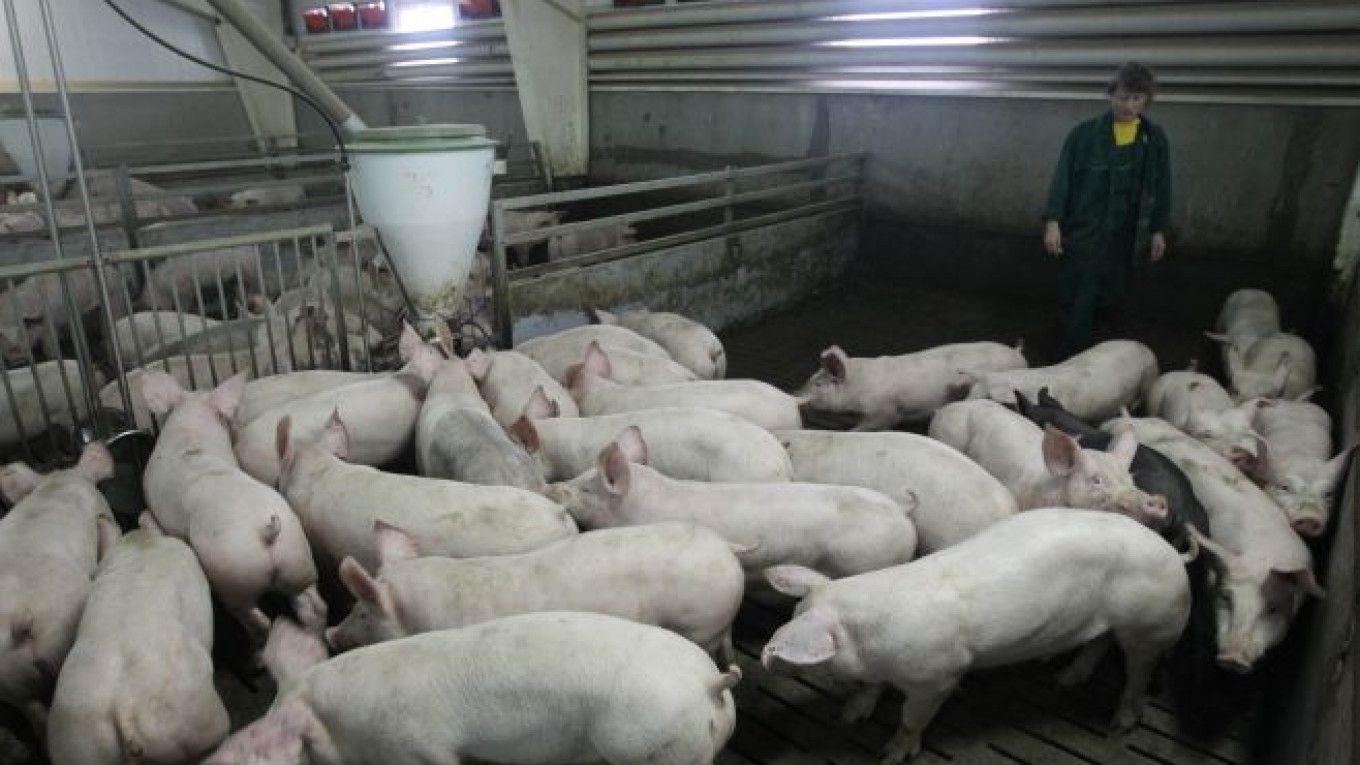SVOBODA VILLAGE, Russia — Russia's farmers need 636 billion rubles ($17.6 billion) of extra state support in 2015 through 2020 to boost output, mainly of pork and poultry, after Russia banned Western food imports, the agriculture minister said Friday.
Russia banned food imports worth about $9 billion from the European Union, the United States, Canada, Australia and Norway in early August in response to trade sanctions over its role in the Ukraine crisis.
Speaking at a government meeting, Minister Nikolai Fyodorov told Prime Minister Dmitry Medvedev that the ministry had drafted a new plan for 2015-2020. The current plan envisions 1.6 trillion rubles ($44 billion) in investments from Russia's federal and regional budgets.
"Taking into account all the realities and all the changing conditions ... we've prepared a moderate scenario of [the agriculture] industry development, which sees additional volume of resource support of ... 636 billion rubles in 2015-2020," he said.
The cash is required mainly to support animal breeding and crop farming, he added.
"We can cover poultry and pork imports with our own production already in the short term," Fyodorov said. "But here one will need ... to decide to extend [state] subsidies for new projects in this sector until 2018."
Projects in the poultry sector are currently being subsidized until the end of 2014 and in pork industry until 2016, he added.
Fyodorov also asked for an extra 28 billion rubles from the 2014 state budget to help cover interest payments on loans and subsidies for investors in the agriculture sector.
Medvedev did not publicly react to these proposals.
Cherkizovo and Rusagro are Russia's largest meat producers.
Fyodorov also told the meeting that Russia's 2014/15 exportable grain surplus was seen at 25-27 million tons, up from an earlier estimate of 25 million tons.
He said Russia kept its 2014 grain crop forecast unchanged at 100 million tons and was planning to buy 5 million tons of grain on the domestic market in the 2014/15 agricultural year to replenish government stocks.
See also:
Russia Scraps Part of Its Food Import Ban to Help Its Farmers
A Message from The Moscow Times:
Dear readers,
We are facing unprecedented challenges. Russia's Prosecutor General's Office has designated The Moscow Times as an "undesirable" organization, criminalizing our work and putting our staff at risk of prosecution. This follows our earlier unjust labeling as a "foreign agent."
These actions are direct attempts to silence independent journalism in Russia. The authorities claim our work "discredits the decisions of the Russian leadership." We see things differently: we strive to provide accurate, unbiased reporting on Russia.
We, the journalists of The Moscow Times, refuse to be silenced. But to continue our work, we need your help.
Your support, no matter how small, makes a world of difference. If you can, please support us monthly starting from just $2. It's quick to set up, and every contribution makes a significant impact.
By supporting The Moscow Times, you're defending open, independent journalism in the face of repression. Thank you for standing with us.
Remind me later.






